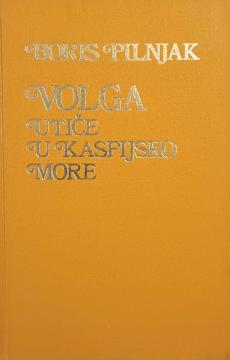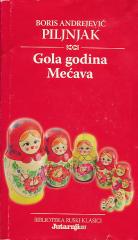
Volga utiče u Kaspijsko more
In the center of the novel Volga Flows into the Caspian Sea, an old Russian province is caught in the majestic act of the river flowing.
Through the image of the construction of a twenty-five meter high stone embankment, in which a large number of peasants and citizens who are desperately clinging to the edges of the disappearing world participate, the writer vividly shows us the stubborn resistance and condemnation of the individual to failure in the fight against the collective, leaving evident the nostalgic attachment to old Russia . It is a type of report written by a great storyteller about the political and family life of two Russias - the one that is disappearing and the one that is ruling. The repression of the authorities in the Soviet Union was aimed at extracting and erasing the roots of the past, the feeling that connected the entire nation. In this tension and cultural split, the immortality of the soul of the thousand-year-old great Russia was discernible. The restlessness characteristic of Piljnjak's expressiveness, a knot of densely interwoven obsessions, fears and insecurities, and feelings of powerlessness, which appear especially in the nocturnal reflections of his characters, runs through this work. The dramatic tension of the novel is reflected in the proclaimed will and policy of the rulers for the progress of Russia, which collides with the stubborn resistance of the characters attached to tradition, who do not want to enter the new promised world, knowing that it will tear them away from everything that had determined their way of life until then and identity. The cry of the helpless peasants hits the stone blocks of the huge embankment and disappears into the depths of the river.
Nema primeraka u ponudi
Poslednji primerak je nedavno prodat.





